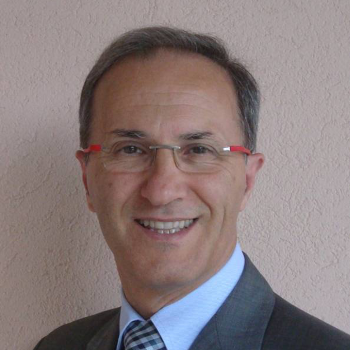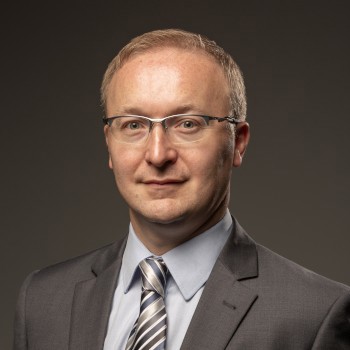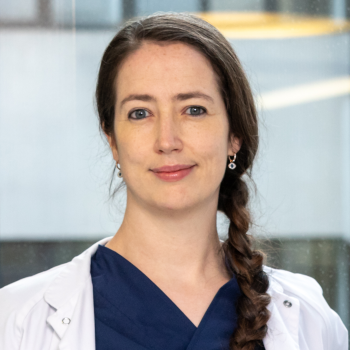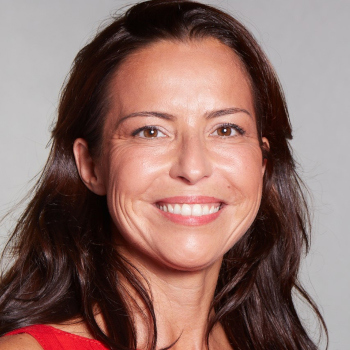ESCRS Masterclass - Complex Cataract

Applications are now closed
The Complex Cataract Masterclass aims to increase cataract surgeons' confidence in tackling more complex cases and having plans in place to deal with complications when they occur.
Most surgeons, as they learn to perform cataract surgery, will build their confidence on routine cases. However, there are many situations which make this surgery more complex, and as with all surgery unexpected complications can occur.
This Masterclass programme will include the following:
- Assignment to a mentor to support questions and provide advice throughout the programme.
- Participants will be part of a small WhatsApp group with direct access to their personal mentor
- Four online modules focused on topics identified below
- Four interactive webinars with all faculty members and groups, to summarise each module in turn and answer any questions
- In-person half-day case review grand rounds in Copenhagen on Thursday, September 11 (attendance required)
- In-person half-day wet labs and dry labs workshops in Copenhagen on either Thursday 11, September or Friday, September 12 (required attendance)
Each participant who completes all of these components and passes the exam will obtain a certificate of completion. The cost to participate in this programme is €250. All participants are required to be present and participate in the live components of each Masterclass. All travel costs will be the responsibility of the Applicant.

Scope
This Masterclass aims to comprehensively cover complex surgeries related to:
- Cornea – opacities of various causes, endothelial issues, optimising visibility cataract during surgery, when to use adjunctive corneal surgery
- Iris and pupil - Uveitic cataract, small pupil and IFIS, iris defects congenital and acquired
- Capsule abnormalities - capsular fibrosis, atopic cataract, Morgagnian cataract
- Zonular issues – Congenital problems, traumatic zonulysis, iatrogenic zonulysis
- The cataractous lens – soft cataracts, intumescent cataracts, hard cataracts, posterior polar cataracts
- Cataract surgery in long and short eyes
- Cataract surgery in post vitrectomy eyes
As well as the following surgeries with complications
- Wound problems – too long, too short, too wide
- Capsular issues – rhexis run out and rescue, Argentine flag sign, capsular fibrosis
- Iatrogenic iris damage
- Dropping and dropped nucleus
- Ruptured posterior capsule – with nucleus pieces still present, without vitreous loss, with vitreous loss, small breaks, large breaks
- IOL implantation with PCR – with capsule, with no capsule
Target Learner
The Complex Cataract Masterclass is primarily targeted towards cataract surgeons who are:
- Nearing the end of their training, or early in their post-training career, with approximately
300 cases as primary surgeon - Wishing to extend the range of cataracts that they feel comfortable tackling more complex cases
- Concerned about their ability to deal with complications which may occur in more complex cases
Selection of participants
• Applications are submitted through the Complex Cataract ESCRS Masterclass online application form and should include a detailed CV.
• Applications are reviewed by the Masterclass Faculty. Priority will be given to surgeons who best fit the targeted audience parameters identified above
Structure of programme
- Round of 4 online modules of one to two months each to cover the subjects highlighted above
- Participants form a WhatsApp group with the instructors who make themselves available to answer questions through this platform related to the modules
- Interactive webinars to wrap-up each online module and further answer questions that have been posted on line
- One and a half day physical course, the masterclass, that will take place in Vienna just before the ESCRS meeting. A mixture of further interactive sessions and wetlabs to practice some of the techniques already taught
This Masterclass aims to comprehensively cover complex surgeries related to:
- Cornea – opacities of various causes, endothelial issues, optimising visibility cataract during surgery, when to use adjunctive corneal surgery
- Iris and pupil - Uveitic cataract, small pupil and IFIS, iris defects congenital and acquired
- Capsule abnormalities - capsular fibrosis, atopic cataract, Morgagnian cataract
- Zonular issues – Congenital problems, traumatic zonulysis, iatrogenic zonulysis
- The cataractous lens – soft cataracts, intumescent cataracts, hard cataracts, posterior polar cataracts
- Cataract surgery in long and short eyes
- Cataract surgery in post vitrectomy eyes
As well as the following surgeries with complications
- Wound problems – too long, too short, too wide
- Capsular issues – rhexis run out and rescue, Argentine flag sign, capsular fibrosis
- Iatrogenic iris damage
- Dropping and dropped nucleus
- Ruptured posterior capsule – with nucleus pieces still present, without vitreous loss, with vitreous loss, small breaks, large breaks
- IOL implantation with PCR – with capsule, with no capsule
The Complex Cataract Masterclass is primarily targeted towards cataract surgeons who are:
- are nearing the end of their training, or early in their post-training career, with approximately 300 cases as primary surgeon
- are wishing to extend the range of cataracts that they feel comfortable tackling
- are concerned about their ability to deal with complications which may occur in more complex cases
Applications are submitted through the ESCRS Masterclass online application form and should include a detailed CV.
Applications are reviewed by the Masterclass Faculty. Priority will be given to surgeons who best fit the targeted audience parameters identified above
Complex Cataract Masterclass - Mentors
Faculty
Amir Agarwal
Michael Amon
Ehud Assia
Ahmed Assaf
Allon Barsam
Roberto Bellucci
Lucio Buratto
Sergio Canabrava
Carlo Carlevale
Arup Chakrabarti
Iva Dekaris
Socha Ni Dhubhghaill
Sri Ganesh
Jose Guell
Soosan Jacob
David Lockington
Boris Malyugin
Richard Packard
Vladimir Pfeifer
Ana Prinz
Paul Rosen
Sathish Srinavasan
Marie-Jose Tassignon
Abhay Vasavada
Ronald Yeoh




